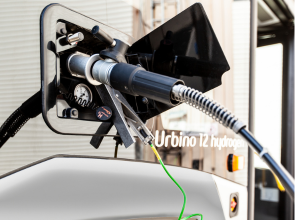Bloom Energy to support decarbonisation drive with Ferrari
Bloom Energy’s fuel-flexible platform also equips Ferrari to lead the race in Italy’s emerging hydrogen economy.

Bloom Energy set a new pace for Ferrari’s drive to achieve carbon neutrality in manufacturing by 2030, announcing one megawatt (MW) installation of Bloom’s solid oxide fuel cells at Ferrari’s expanding manufacturing facility and headquarters in Maranello, Italy.
The partnership with Ferrari, a global leader in the luxury and automotive sectors for 75 years, marks Bloom’s entry into the European Union and Italy and is the first step toward potentially larger projects between the two companies.
Bloom Energy’s highly efficient platform converts fuels such as hydrogen, biogas, or natural gas into clean electricity without combustion. Through Bloom’s solid oxide platform, Ferrari is expected to be able to reduce its fuel consumption and carbon emissions at its manufacturing facility while unlocking cost and sustainability benefits.
Operating at superior efficiencies, Bloom Energy Servers will initially provide 5% of the energy needed at Ferrari’s Maranello headquarters and manufacturing centre.
The Bloom Energy Servers are expected to cut gas requirements by around 20% from the combined heat and power (CHP) system now in use at Ferrari, while also reducing emissions. This will enable Ferrari to bolster energy conservation amid record-high energy prices, while simultaneously reducing greenhouse gas emissions and improving local air quality, with virtually zero harmful air pollutant emissions such as sulfur oxides, nitrogen oxides, and particulate matter.
According to Italy’s Ministry of Economic Development, the country plans to cover a fifth of its overall energy demand from hydrogen by 2050. The flexibility of Bloom’s platform will allow Ferrari to generate carbon-free electricity from hydrogen and other zero-carbon fuel sources.
KR Sridhar, founder, chairman, and CEO, Bloom Energy, said, “By collaborating, we’re showcasing how energy-intensive industries, such as manufacturing, can be decarbonized through clean, reliable energy.”
